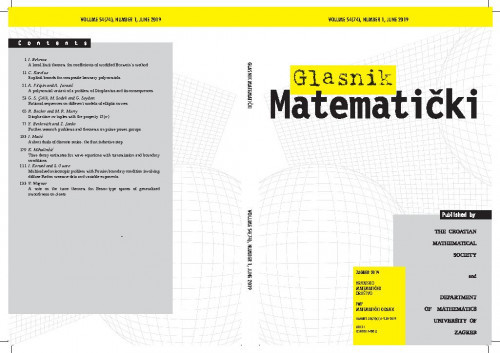In this paper we prove that every Diophantine quadruple in [X] is regular. In other words, we prove that if {a, b, c, d} is a set of four non-zero elements of [X], not all constant, such that the product of any two of its distinct elements increased by 1 is a square of an element of [X], then (a+b-c-d)2=4(ab+1)(cd+1). Some consequences of the above result are that for an arbitrary n there does not exist a set of five non-zero elements from [X], which are not all constant, such that the product of any two of its distinct elements increased by n is a square of an element of [X]. Furthermore, there can exist such a set of four non-zero elements of [X] if and only if n is a square.
Sažetak

 Glasnik matematički : 54,1(2019) / glavni urednik Dražen Adamović.
Glasnik matematički : 54,1(2019) / glavni urednik Dražen Adamović.